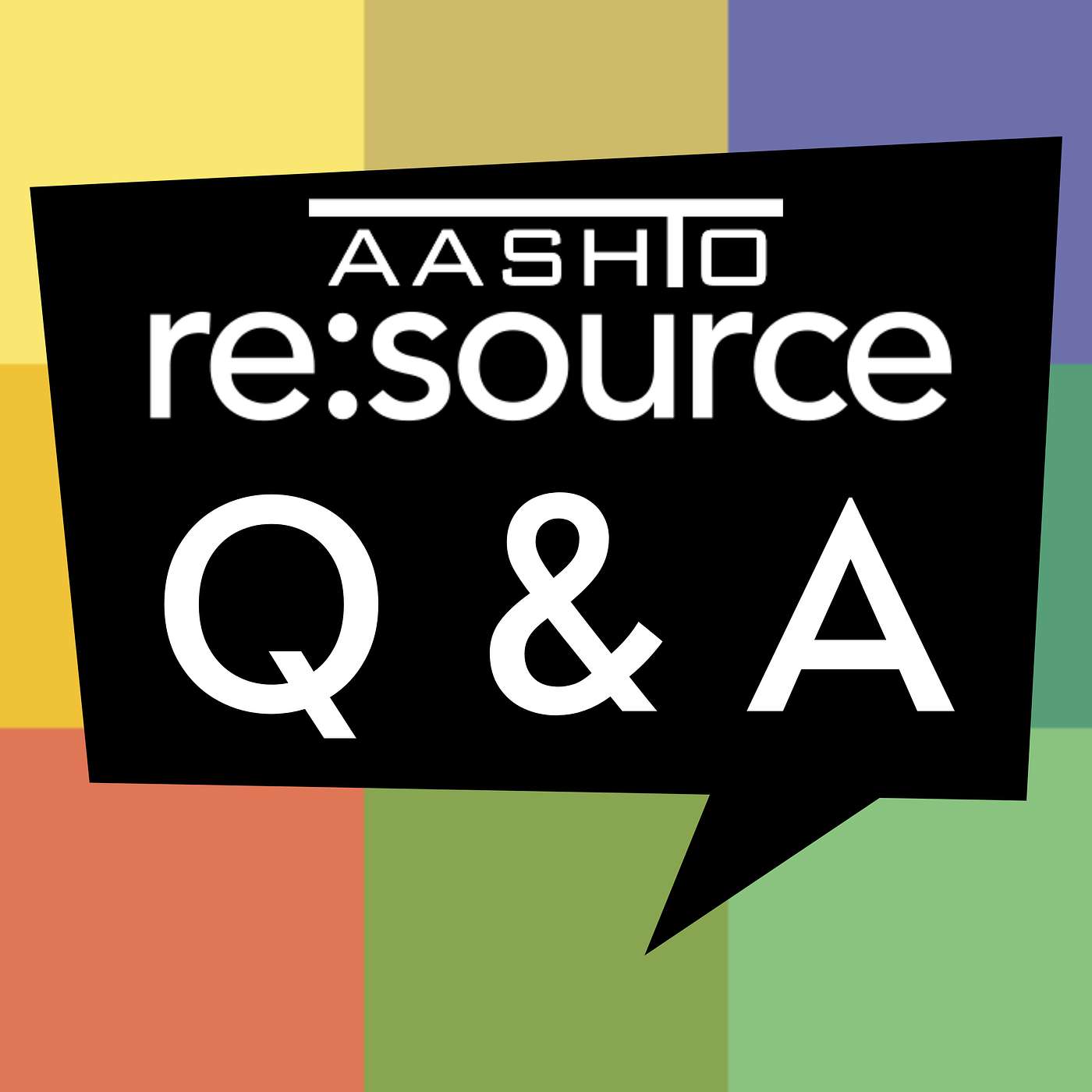 Creating Quality “New Year’s” Resolutions at Work, Part 1
24:07
Creating Quality “New Year’s” Resolutions at Work, Part 1
24:07
 Taken from TechEx: Mastering Laboratory Management (Panel Discussion)
22:33
Taken from TechEx: Mastering Laboratory Management (Panel Discussion)
22:33
 Understanding Changes to the AASHTO Accreditation Program Procedures Manual
44:22
Understanding Changes to the AASHTO Accreditation Program Procedures Manual
44:22
 The Evolution of Accreditation with Peter Unger
38:55
The Evolution of Accreditation with Peter Unger
38:55
 Can AI and Automation Reinvent Testing?
36:19
Can AI and Automation Reinvent Testing?
36:19
 Public Works Leadership: A Conversation with Steve Read
47:23
Public Works Leadership: A Conversation with Steve Read
47:23
 Quality, Conversation, and Construction Materials: A Season in Review
12:39
Quality, Conversation, and Construction Materials: A Season in Review
12:39
 Mid-Atlantic Quality Assurance Workshop: How to Leverage AASHTO re:source Programs to Monitor and Improve Quality
42:17
Mid-Atlantic Quality Assurance Workshop: How to Leverage AASHTO re:source Programs to Monitor and Improve Quality
42:17
 Preparing for the 2025 AASHTO re:source Technical Exchange
38:19
Preparing for the 2025 AASHTO re:source Technical Exchange
38:19
 Embracing Change and Efficiency at Oklahoma DOT with Bryce Hanlon
55:47
Embracing Change and Efficiency at Oklahoma DOT with Bryce Hanlon
55:47
 Navigating Updated Masonry Unit and Prism Accreditation Policy for ASTM C140 and C1314
25:41
Navigating Updated Masonry Unit and Prism Accreditation Policy for ASTM C140 and C1314
25:41
 Unlocking Section 3.5 of the AASHTO Accreditation Procedures Manual, Part 2
28:29
Unlocking Section 3.5 of the AASHTO Accreditation Procedures Manual, Part 2
28:29
 Unlocking Section 3.5 of the AASHTO Accreditation Procedures Manual, Part 1
32:46
Unlocking Section 3.5 of the AASHTO Accreditation Procedures Manual, Part 1
32:46
 Four I's of the Corrective Action Process
20:22
Four I's of the Corrective Action Process
20:22
 Standardizing Concrete Practices: The Story of AASHTO R 119
18:08
Standardizing Concrete Practices: The Story of AASHTO R 119
18:08
 The Great Aggregate & Rebar Debate: Who Should Perform Your Assessment?
17:46
The Great Aggregate & Rebar Debate: Who Should Perform Your Assessment?
17:46
 Unlocking Effective Lab Monitoring: The Power of AASHTO re:source Specifier Features
40:07
Unlocking Effective Lab Monitoring: The Power of AASHTO re:source Specifier Features
40:07
 From Volunteers to Leaders: Building a Supportive Committee Environment
48:13
From Volunteers to Leaders: Building a Supportive Committee Environment
48:13
 Rolling Forward: Exploring the New Hamburg Wheel Track Proficiency Sample Program
33:22
Rolling Forward: Exploring the New Hamburg Wheel Track Proficiency Sample Program
33:22
 Empowering Quality: Insights from Benjamin Trujillo
42:39
Empowering Quality: Insights from Benjamin Trujillo
42:39
 Mastering AASHTO R 18: Common Pitfalls
52:01
Mastering AASHTO R 18: Common Pitfalls
52:01
 Revolutionizing Quality Management: AASHTO re:source's Bold Vision for 2024-2027
35:12
Revolutionizing Quality Management: AASHTO re:source's Bold Vision for 2024-2027
35:12
 Behind the Scenes of Our Season 5 Revamp
16:13
Behind the Scenes of Our Season 5 Revamp
16:13
 Season 4 Recap
17:57
Season 4 Recap
17:57
 Webinar Audio: A Behind-the-scenes Look at Assessment Scheduling
39:10
Webinar Audio: A Behind-the-scenes Look at Assessment Scheduling
39:10
